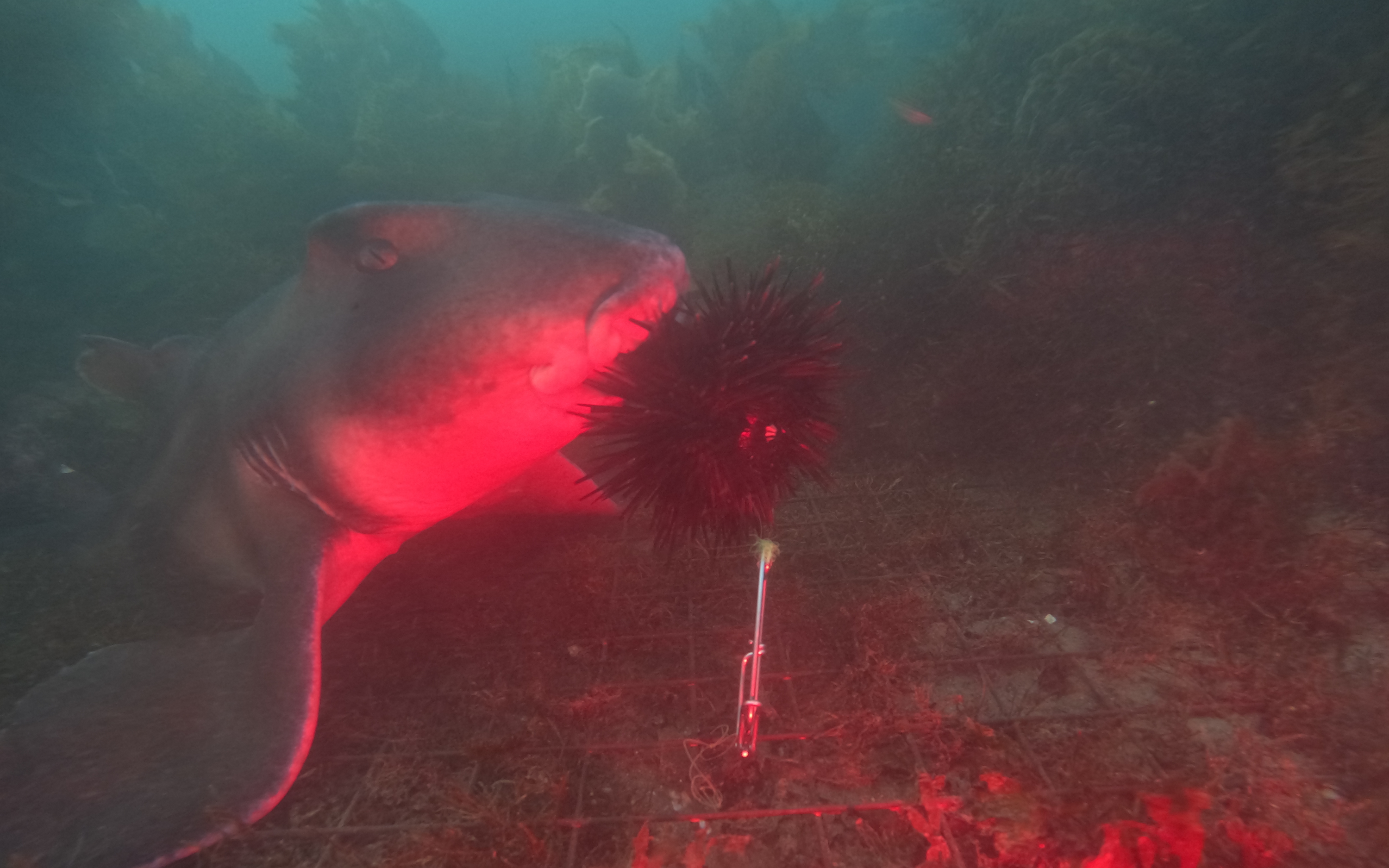News release
From:
Key findings:
"Sharks are overlooked predators of sea urchins in NSW, while the role of lobsters appears to be less than expected. Importantly, sharks easily handle very large sea urchins!" lead researcher from the University of Newcastle, Jermey Day said.
"This experiment was originally designed to show how lobsters prey on urchins, but sharks surprisingly came in and ate the majority (45%) of the tethered urchins while lobsters ate few (4%).
"Lobsters are thought to be "key" urchin predators which control urchin abundances while sharks are not typically considered in urchin predator models," Jeremy said.
Methodology:
"We tethered 100 urchins directly at a lobster den (i.e. the place where lobsters live) in Wollongong for 25 nights. "Tethering" is where urchins are surgically restrained to remain available for predation overnight and to stay within view of our cameras. We used a red-filtered light to film the experiments because invertebrates don't like the white light spectrum," Jeremy Day said.
Why does this matter:
"It has been thought until now that there were few or no predators capable of handling very large urchins.
"In this study we report a little considered urchin predator in Port Jackson sharks and Crested Hornsharks, and determined that the effect of lobsters on urchins in the wild is less than has been previously thought. This matters because long-term efforts to control urchin numbers by ensuring predator numbers have not had the expected effect in NSW despite protections of > 20 years.
"This experiment provides one possible answer, since lobsters seemed generally uninterested in eating urchins, and also adds to the complexity of the model since sharks unexpectedly arose as the predator eating most of the urchins. We confirm that the range of predators that eats urchins is broader than has been traditionally thought," University of Newcastle Marine Science PhD student Jeremy Day said.
Multimedia




 Australia; International; NSW; SA
Australia; International; NSW; SA



